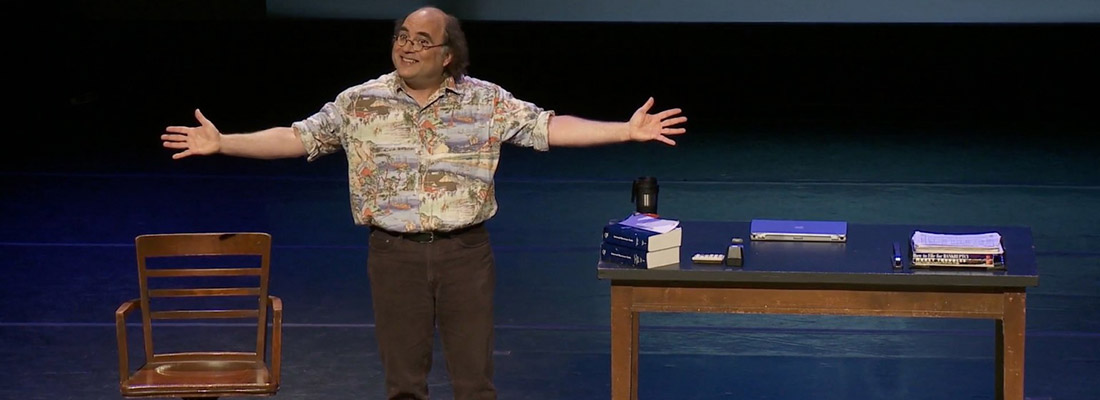
So how tough were the Israelites, really? This question — like a stand of reeds — lay just beneath the surface of our many discussions in the first installment of the four-session class that I’m doing with Rabbi Menachem Creditor at Congregation Netivot Shalom in Berkeley. Titled “Swimming the Sea of Reeds,” this short but intense course is an attempt to investigate what happened at that crucial moment in the Book of Exodus when the fleeing Israelites, seemingly about to be slaughtered by the Egyptians, experienced a saving miracle: the sea in front of them parted, they went through to the other side, and then the sea closed over their pursuers, killing them instead.
That sea, which I remember being referred to as the Red Sea (a pleasing name in my Communist childhood), is called, in the great modern translation by Robert Alter, the Sea of Reeds. Which, as I have recently taken up the double-reeded oboe again — after a break of many decades — I find even more gratifying. In fact, I was so taken by the term Sea of Reeds that I decided to make it the title of my next theater piece. And that, in turn, strongly suggested that the piece live at the intersection of two kinds of practice: Jewish and musical. (Yes, I typically retrofit my shows to titles that I love. So for example, when — in researching a medical condition called Sjögren’s syndrome — I once happened upon a newsletter called “The Moisture Seekers,” it was practically inevitable that I’d develop a show about sex just to go with that title.)
The reading for this session was Chapter 14 of Exodus, in which the sea-splitting happens. Like all the other chapters, it’s filled with language and imagery that I find endlessly evocative, confusing, and elliptical. Alter’s notes do a great deal to elucidate the text — or at least to clarify what the confusion is about — but that still (fortunately) leaves much to ponder. And as I mentioned earlier, in class one big, recurrent issue for us was the question of how much, exactly, did Moses and the Israelites do. Because the narrative makes it quite clear that God was acting, in essence, as the grand puppeteer — hardening Pharaoh’s heart when the Egyptian king was about to give up the chase, directing Moses’ actions so that this (very) human being (and not God) would appear to be causing the miracles, and generally moving all the characters along in such a way that the Israelites would ultimately triumph.
So were the Israelites heroes, in the sense that we usually think of the word? If I had any knowledge at all about ancient Greek drama, I would insert an impressive passage here about Oedipus and Fate — but I don’t, so I can’t. And yet there seems to be a similar vibe here — perhaps an ancient vibe — that has to do with the Gods (or, in this case, the one God) having already written the stories that we humans, in our self-centered way, register as our own experiences. So ironically, in the Exodus story — which is seemingly about the transformation of a slave population into a culture with agency — the protagonists themselves are quite passive. Actually, worse than passive — they also do a lot of kvetching! Often they sound like elderly passengers on a cruise ship that’s turned out to be much less luxurious than in the brochure.
But there’s something else, too — a deeper thing — that I felt from that chapter, and that I think others in the class felt as well: As much as we (or, at least, I) may, well, kvetch about it, the language also transmits an enormous amount of power. There is, in this story — in the way this story is told — a profound empathy with those who suffer terribly, who lack agency. And there are so many people who suffer in this way, day after day — for whom the miraculous gift of a life is something more like a curse. What draws me to Judaism — and to other forms of theology as well (and, for that matter, to democracy) — is the idea that our purpose, in our own lives, is to try to improve the lives of others; and the belief (hope?) that a community of like-minded people can work at this together. In what I see as a violent and quite random universe, it is incredibly strange that we might choose to spend our brief time of consciousness (or, at least, much of it) in such ethical pursuits; and so it is perhaps only fitting that it would take incredibly strange language to describe that journey — and, more important, to inspire similar journeys.
And if we’re really going to go there, together, through the Sea of Reeds — intellectually, spiritually, and physically — I think we’re going to have to be quite tough indeed.
[ADDED ON 1-28-21:]
I come out of semi blog retirement to announce that a wonderful person named Kathy Sheinhouse, having read Jeff Greenwald’s article about my attempts to make oboe reeds, has sent me two beautiful reeds of her own making!
Her company is (appropriately) called Magic Reed. Her website is here — and if you are one of the multitudes who, like me, have a helluva time trying to make even one workable reed, you can email her at Info@MagicReed.com. She claims to actually enjoy making reeds — miraculous (and, um, magical)!!
